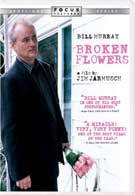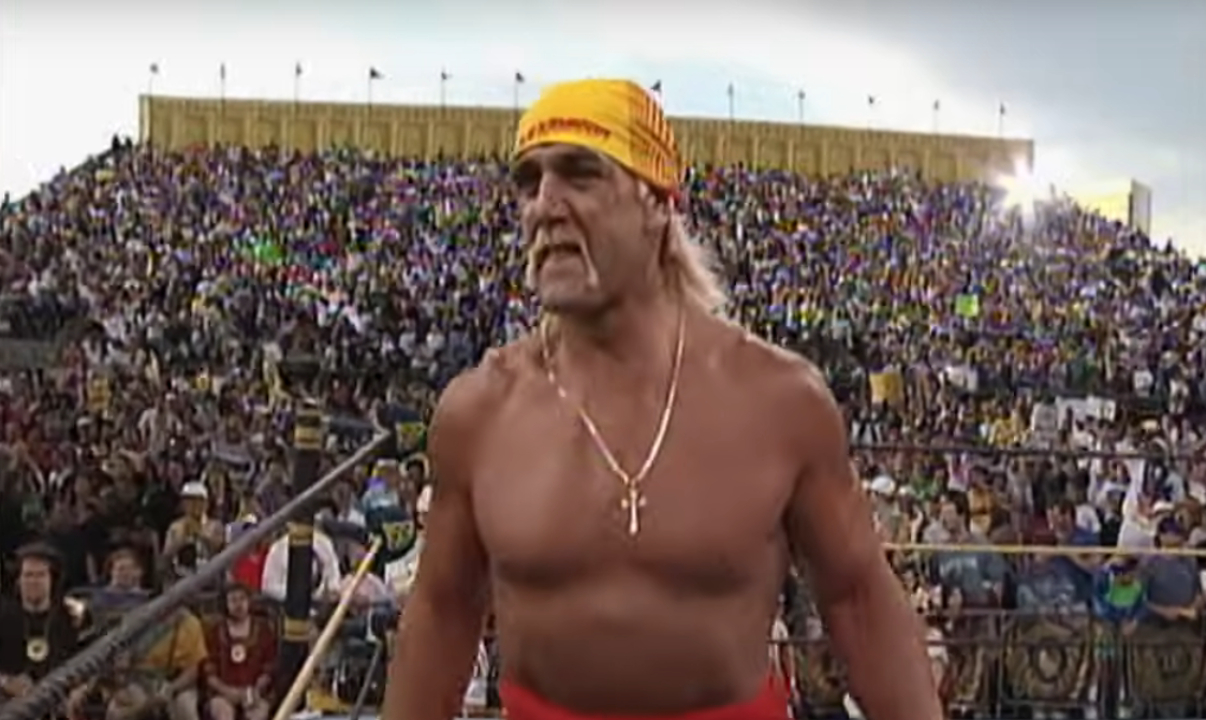Broken Flowers is supposed to be a strong, self-analyzing film about a Don Juan type man who learns he may have a nineteen year old son out there looking for him. Slowly, during visits with the four girlfriends he was with twenty years earlier, he changes. His life, which once only involved women, transitions to include men as his eyes open to the possibility of being a father. The problem: that is what Broken Flowers is supposed to be, but not what it actually is. What it is, is a dull, slow paced, low energy film where too many ideas are hinted at but never pursued as symbolic. For a movie that focuses on the internal shift of a man, we are unfortunately always external to him. No answers to questions are given, possibly to allow for debate, but sadly leaving the audience with more ambivalence about whether we care to know the answer than a begging desire to know it.
If that isn’t bad enough, somewhere in there, Jim Jarmusch, the writer and director, tries to take a stab at a social commentary but falls as short as the plot when it comes to delivery. For example, during three of the four visits Murray makes, we see different states of financial status and upkeep of personal basketball hoops. Now, we assume this is to mean the woman that lives there has a son, but other than that these shots have no bearing on the story. They tell us nothing. Maybe the women had daughters that played basketball. It was an attempt, but without clarification, it falls short.
Let me be clear on this point—I don’t fault Bill Murray or any of the rest of the cast for this misunderstanding between Jim Jarmusch and the rest of the world. The real error here is the shallowness of the story when the genuine attempt was for such depth. With random shots taking thirty seconds when five would get us through I can’t imagine the script was more than fifty pages. I get that Murray’s character is a normal person that has to get from point A to point B, but I don’t need to see him sitting on a plane or a bus (and all the scenery that goes with it) for five minutes to know he’s isolated even when he’s not at home alone sitting on the couch.
The thing is, Broken Flowers is a bit of a theatrical oddity. The film is, for the most part, made up of pretty good scenes, visual appeal, intrigue, etc., and yet, as a whole, isn’t any deeper than "insert any Queen Latifah movie title here". Don’t get me wrong, I wanted to like this film. I like what Murray has been doing with the golden years of his career. I liked looking for the color pink in the movie as a sign of who the mother could be (because she sent her letter to Murray on pink stationery.) I liked looking for clues like those alongside Bill during the search for a son. I just wish there was more to it than traveling around with Bill and yet not really getting to know his character intimately.
The story is left open in the end for discussion, interpretation, and ponderance, but I wanted more clarity. I wanted to know a little something more about this character other than watching him. As an audience, we are never really let in. While there were some beautiful scenes, some funny scenes, and some painful scenes, the moral of the story here kids is: bland. This film could have been so much more than it is, and if it were any less, it would be horrible. There’s a fine line between a creative work of art and random paint splatter. Sadly, Broken Flowers seems to fall on the wrong side of that line. Broken Flowers on DVD, with all the multitudes of possibilities for extras and explanations of the film, runs into the same problem of just being deficient across the board. There’s no audio commentary at all, let alone interviews with Bill Murray or any of the leading ladies from the film. After being so on the fence about this movie, I really needed those interviews to save it, to steer me in the right direction, but there were none. How will I ever know the real intention of the film? How will I know if Jim Jarmusch wanted the film to come off as obscure and meaningless? I won’t. But what I will know is a bunch of fluff that is obviously all they could find to show, none of which was worth it.
The first extra “Girls On the Bus” is nothing more than an extended scene of two annoying teenage girls talking while Murray rides on a bus across the isle from them. It changes nothing in the story, and if it were included in the final version would still change nothing. It’s girls talking about lipstick, or boys, or lying to their mothers; it’s fluff and a useless feature.
The next is “Broken Flowers: Start to Finish” where you literally see every clapboard from filming (the movie originally being called Dead Flowers) and a few outtakes and clips. Certainly not what I wanted to see and the quickness of the shots could almost give a person a good dose of epileptic seizures. I like that they were thinking differently when they wanted to show outtakes, but I think they should have tested this method on a group before they mass distributed the disc. It wouldn’t even need to be a large group, maybe two or three people who could take the sacrificial seizure and stop this sort of presentation.
Finally, the segment called “Farmhouse” is just plain weak. I’ll break it down into two parts for you. It’s footage of the crew and a few actors blocking out the scene at (duh) the farmhouse. Well, Bill Murray isn’t even there so they have a stand in for him and all the crew is meandering around getting things ready. That’s the visual. As for the second portion, the audio: the answers side of an interview with someone (we never get the name of the speaker although we can assume it’s Jarmusch). This is where we could gain insight into the film. We could hear it straight from the writer, the whys, whats, whos, hows, etc., but here comes the disappointment. From the sound of the audio Jarmusch answered his questions from a call in on a cell phone and since you don’t hear the questions that might have prompted such answers it seems random and jumbled together. It’s horrible.
With a cast like this there should have been more interviews and interpretations about the film. We should have seen what it was like for Bill Murray to take on a character who isn’t full of direct humor. It’s obvious they changed the name from Dead Flowers to Broken Flowers, they should have at least presented it as just that: broken, but not dead.
Hulk Hogan Talked About His Infamous WrestleMania IX Black Eye Again, But Other Wrestlers Are Very Skeptical
There's Talk Of More Adolescence On Netflix, But I Hope They Avoid A Couple Of Things
I Did Not Expect Kelsea Ballerini To Replace Blake Shelton As Adam Levine’s Rival On The Voice, But The Maroon 5 Singer Knew It ‘Instantly’











